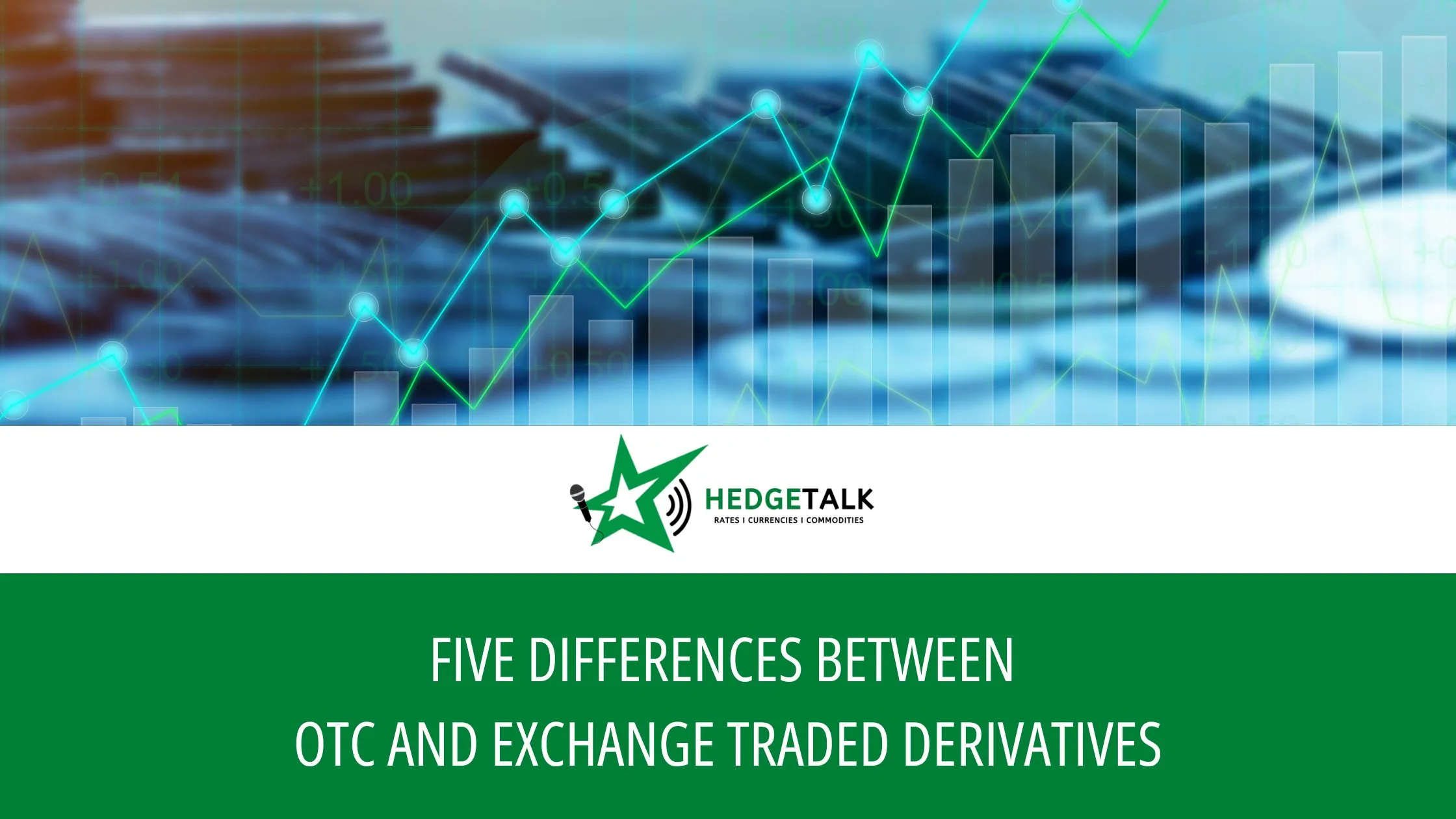Over-the-counter derivatives, also called OTC derivatives, and exchange-traded derivatives have several key differences. Below are five major distinctions between them:
Trading Venue:
-
OTC derivatives are traded directly between two parties with no centralized exchange or intermediary involved.
-
Exchange-traded derivatives are traded on a formal exchange such as the Chicago Mercantile Exchange where the transaction is facilitated by the exchange.
Standardization:
-
OTC derivatives are customized to meet the specific needs of the parties involved such as notional amount, maturity and other contract terms.
-
Exchange-traded derivatives are standardized in terms of contract size, expiration dates and underlying asset.
Counterparty Risk:
-
The risk of counterparty default is higher with OTC derivatives because these trades are not guaranteed by a clearinghouse. Each party must assess and manage the credit risk of the other party.
-
With exchange-traded derivatives the exchange acts as an intermediary and clearinghouse which mitigates counterparty risk. The clearinghouse guarantees the performance of the contract, reducing the risk of default.
Regulation:
-
OTC derivatives are less regulated compared to exchange-traded derivatives. Regulatory oversight may vary by jurisdiction, but in general, OTC markets are more opaque.
-
Exchange-traded derivatives are subject to strict regulatory oversight by financial regulatory authorities. Exchanges must comply with specific rules and reporting requirements ensuring greater transparency and protection.
Liquidity and Pricing:
-
OTC derivatives tend to be less liquid because they are customized and traded privately. Pricing can be less transparent and more difficult to determine.
-
Exchange-traded derivatives are typically more liquid due to their standardization and centralized trading. Prices are publicly available, and there is often a continuous market for these contracts.
There are pros and cons to both OTC and exchange-traded derivatives that impact which is most suitable for a particular organization. If you are unsure which one best fits your needs, enlist the help of an advisor to assist in making this determination.
Want to learn more? Let’s
chat: https://outlook.office365.com/book/HedgeStar@derivactiv.com/
Author: John Trefethen, Director and Co-Founder
Mobile: 612-868-6013
Office: 952-746-6040
Email: jtrefethen@hedgestar.com
HedgeStar Media Contact:
Megan Milewsky, Marketing Manager
Office: 952-746-6056
Email: mmilewsky@hedgestar.com
Check out our services:
Valuations Services | Hedge Accounting Services


